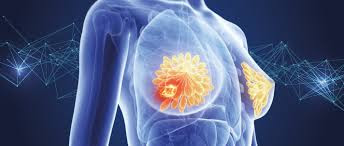Frequent Hot Flashes May Signal Higher Risk of
Heart Problems : World Health Informatics Blog.
Research presented at this year’s North American Menopause Society annual meeting says persistent hot flashes could be a sign that you’re at higher risk for a heart attack or stroke.
By Don Rauf
October 13, 2022
Risk for heart
disease increases in women as they age — years after menopause.iStock
Most women going through the menopausal transition will
experience hot flashes, a type of “vasomotor
symptom,” that involves a sudden feeling of intense heat that causes
some to breakout in a sweat. Johns Hopkins Medicine estimates that about three-quarters
of all women have these sudden and brief episodes, which can affect quality of
life, disrupt sleep, heighten irritability, and cause depression. On average,
hot flash symptoms last for more than seven years, according to the Mayo Clinic. But in some cases, they may persist for 10 years
or longer.
Reaching menopause
means that heart risks increase because your body no longer produces enough estrogen to protect
your heart. The American Heart Association notes that more than 1 in 3
women has some form of heart disease, and an overall increase in heart attacks
among women is seen about 10 years after menopause.
At the North American Menopause Society
(NAMS) Annual Meeting in Atlanta on October 12, Rebecca
Thurston, PhD, director of the Women's Biobehavioral Health
Laboratory at the University of Pittsburgh’s School of Public Health, presented
data on hot flashes and heart disease risk, and provided guidance on what women
should consider to help lower the likelihood of having heart problems.
“For years,
vasomotor symptoms have been regarded as a midlife symptom with few
implications for women’s physical health,” says Dr. Thurston, who is currently
conducting work funded by the National Institutes of Health. “But a growing
body of literature is beginning to link these vasomotor symptoms to indicators
of cardiovascular disease risk.”
She noted that women with frequent or severe hot flashes are more likely
to have conditions that raise the risk of having heart problems, including high
blood pressure, diabetes, and high cholesterol,
as well as a greater risk of underlying atherosclerosis,
fat buildup in the arteries that can block blood flow.
Thurston’s
presentation was drawn from two studies. One was the Study of Women’s
Health Across the Nation (SWAN), which includes more than 3,300
middle-aged women participating through seven designated research centers
across the United States. The other was a University of
Pittsburgh study published in 2016 in the journal Stroke,
involving 304 women recruited locally.
In her research of
304 women, Thurston and her collaborators found that participants with more
vasomotor symptoms had more carotid atherosclerosis (narrowed blood vessels in
the neck that carry blood from the heart to the brain).
She added that observations from the SWAN study and current research from around the world also indicated that reported hot flashes were associated with atherosclerosis, and that about one-third of women appear to have frequent vasomotor symptoms, which especially appears to affect heart health.
Findings from the
SWAN study also showed that women with frequent or persistent vasomotor
symptoms faced a 50 to 77 percent increased risk of future heart disease.
Participants, who were between 42 and 52 years old at study start, were
followed for up to 22 years and completed up to 16 follow-up visits. From the
start of the study and at each follow-up visit, women were asked (using a
standard questionnaire) to report how often they experienced vasomotor symptoms
(hot flashes and night sweats) in the previous two weeks. Responses included
six or more days (either or both hot flashes or night sweats), one to five days
(either or both hot flashes or night sweats), or no symptoms.
Thurston has also been involved with research that is looking at
the role menopausal symptoms may play in brain health, including small vessel
disease in the brain. One study
published in 2016 in the journal Menopause indicated
a possible link between hot flashes and white matter hyperintensities, areas of
the brain that show up as bright, high signal intensities on MRIs, and are
thought to result from chronic ischemia (a blood supply deficiency). This
insufficient blood flow to the brain could result in a stroke. But study
authors noted that further investigation is warranted and mechanisms linking
hot flashes to white matter hyperintensities are not yet clear.
“There’s essentially a coalescing of information from around the
globe that points to the importance of these vasomotor symptoms in women’s
cardiovascular health,” says Thurston. “I've been struck by how consistently we
see this association.”
Although evidence has shown links between frequent and severe
flashes and greater heart risk, Thurston and her fellow researchers do not know
if treating these menopausal symptoms will improve heart outcomes. Studies
along these lines are still needed and scientists are looking at factors such
as inflammation, clotting, and hormone changes that may play a role.
For women who experience frequent hot flashes, Thurston suggests seeking treatment from a gynecologist, primary care provider, or nurse practitioner — ideally one who is trained in menopause care.
She also urges women to take a hard look at their
lifestyle and health habits. “If you're smoking, now is the time to stop,” she
says. “If you're having trouble with weight management, get some support for
that.”
The American Heart Association recommends getting
cholesterol checked every five years, blood pressure checked at least every two
years, blood sugar levels checked every three years, and body mass index checked during every
regular healthcare visit. Also, women are advised to get at least 150 minutes
of physical activity per week to help lower their risk of
heart disease and to follow a heart-healthy
diet.
“During midlife, many things change dynamically for women,” so
make sure you’re keeping those risks under control, notes Thurston.
But she says women shouldn’t be overly scared of all these
potential health threats.
“It’s stressful enough to be going through menopause and having
lots of these vasomotor symptoms,” says Thurston. “So get your basic vasomotor
symptoms treated if they’re really causing you suffering, and make sure you’re
on top of your cardiovascular health.”
She
also encourages women to prioritize their health as they tend to put the health
of others before their own. “While that's a very loving thing to do,
prioritizing your own health is critical as well.”
Please live your valuable comments so i can improve my Blog further
Thank you
World Health
Informatics Blog
Note :
1) This blog is
originally published on https://www.everydayhealth.com/menopause/frequent-hot-flashes-may-signal-higher-risk-of-heart-problems/
2) This Blog is for
Education purpose only and not a treatment for any diseases



